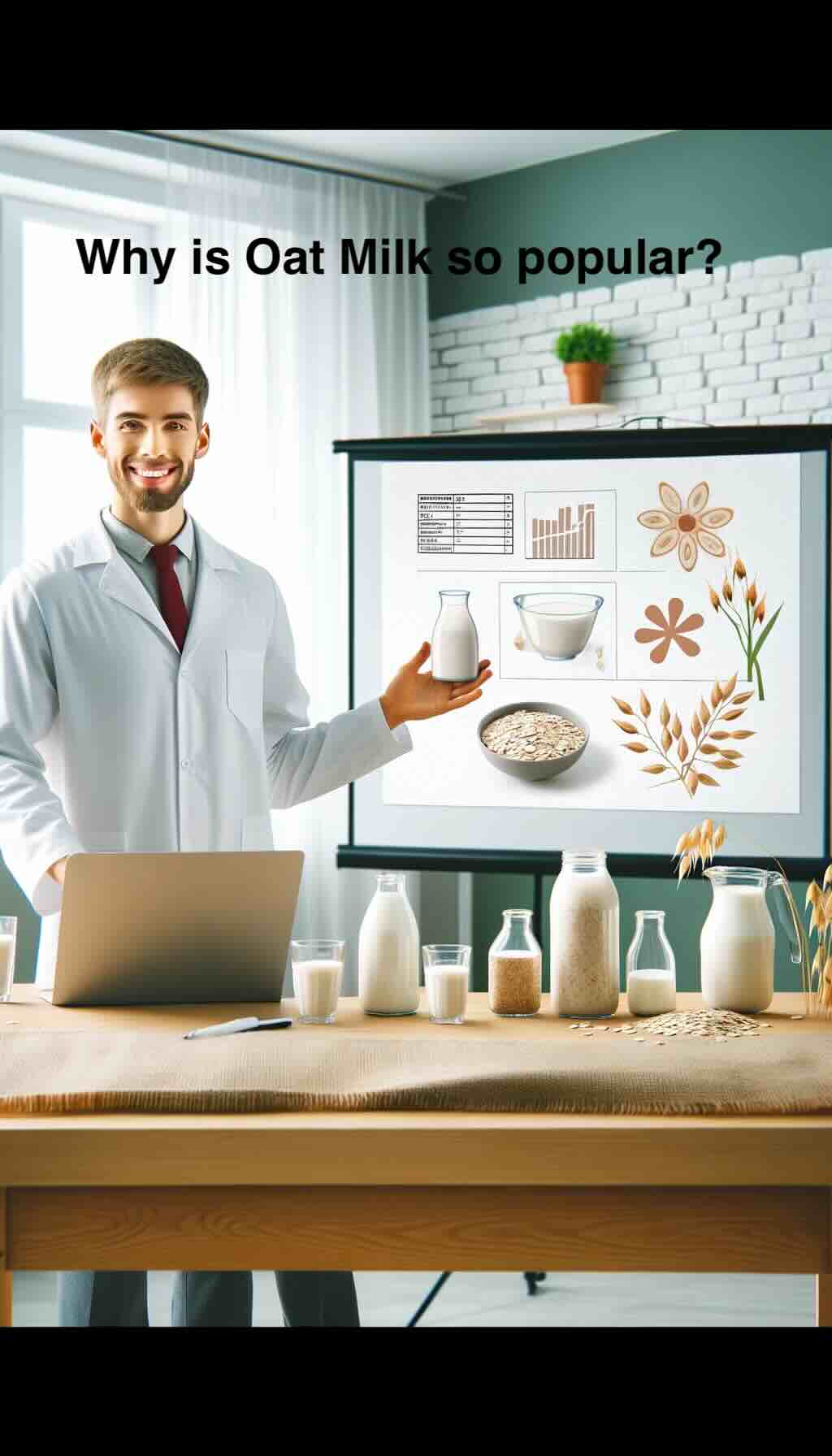
As the dawn breaks over the horizon of health and sustainability, a new hero emerges in the world of plant-based alternatives: oat milk. Not just a trend but a testament to the evolving consumer palate and environmental consciousness, oat milk is setting the stage for a revolution in what we pour into our morning coffees, cereals, and smoothies. But what’s the real scoop behind this oat-based phenomenon? Let’s milk it for all it’s worth.
From Oats to Oat Milk: The Creamy Transformation
At its core, oat milk is a simple concoction: water and oats. Yet, the journey from field to frothy glass is a marvel of modern food science. The process begins with soaking oats, blending them with water, and then straining the mixture to achieve that smooth, creamy liquid gold. However, the commercial production of oat milk adds a layer of complexity, incorporating enzymes to break down the starches, resulting in a naturally sweet taste without added sugars.
Nutritional Nirvana or Just Hype?
Oat milk’s rise to fame isn’t just due to its creamy consistency and eco-friendly badge. It’s also packed with a nutritional punch – or is it? Yes, oat milk is enriched with vitamins and minerals, making it a formidable contender to cow’s milk. It boasts a low-fat content while providing a decent dose of fiber and being naturally free of cholesterol. However, it’s essential to navigate the sea of options wisely – opting for unsweetened varieties can steer you clear of unnecessary sugars.
The Green Glass of Goodness
Perhaps the most compelling narrative for oat milk’s popularity is its environmental sustainability. Compared to almond, soy, or cow’s milk, oat milk requires significantly less water, land, and emits fewer greenhouse gases. This plant-based milk’s carbon footprint is a gentle step on the planet, aligning perfectly with the growing demand for sustainable food choices.
Not Without Controversy
Yet, oat milk’s journey isn’t without its bumps. The conversation around additives like oils and gums for texture and stability raises eyebrows among purists. Moreover, the packaging and transportation of commercial oat milk invite scrutiny over its green credentials. The key? Look for brands committed to sustainability from production to packaging.
Making the Oat Milk Choice
With oat milk, the power is in your hands. Whether you’re blending up a homemade batch or scouting the supermarket shelves, consider your health goals and environmental values. For the DIY enthusiasts, making oat milk at home is a simple and satisfying way to control what goes into your glass.
To Sip or Not to Sip?
In the end, oat milk is more than just a fad. It’s a reflection of a collective shift towards healthier, sustainable living. As we embrace plant-based diets and eco-conscious choices, oat milk stands out as a versatile, delicious, and responsible option for the modern consumer.
So, the next time you enjoy that creamy, dreamy oat milk latte, remember: you’re not just savoring a delicious drink; you’re part of a global movement towards a healthier planet and a healthier you.
10 FAQs for “The Oatstanding Truth: Health Fad or Future of Dairy?”
What exactly is oat milk?
Oat milk is a plant-based milk alternative made by blending oats with water and straining the mixture to create a creamy, dairy-free beverage.
Is oat milk healthier than cow’s milk?
Oat milk is lower in cholesterol and can be enriched with vitamins and minerals. However, it may have less protein than cow’s milk, making it different rather than outright healthier.
Can I make oat milk at home?
Absolutely! Blend 1 cup of rolled oats with 4 cups of water, strain through a cheesecloth, and enjoy. Feel free to add vanilla or dates for sweetness.
Does oat milk have any environmental benefits?
Yes, oat milk production typically requires less water and land and generates fewer greenhouse gases compared to dairy milk production.
Is oat milk suitable for people with allergies?
Yes, it’s a great option for those allergic to nuts, soy, or lactose. However, ensure the oats are gluten-free if you have a gluten sensitivity.
Can oat milk be used in cooking and baking?
Yes, it’s a versatile substitute for dairy milk in most recipes, offering a slightly sweet flavor and creamy texture.
Why does some oat milk contain oil?
Oils are sometimes added to commercial oat milk to improve texture and mouthfeel, mimicking the richness of dairy milk.
Is oat milk good for weight loss?
Oat milk can be part of a weight management diet if unsweetened varieties are chosen as part of a balanced diet.
How do I choose the best oat milk?
Look for unsweetened varieties with minimal additives. Checking the label for fortification with calcium and vitamins can also be beneficial.
Will oat milk curdle in coffee?
Like many plant-based milks, oat milk can curdle in coffee due to acidity and temperature, but barista blends are formulated to be more stable.
Blog Tags
oat milk, dairy alternative, plant-based milk, sustainable living, nutrition, home recipes, environmental impact, food allergies, cooking and baking, product selection









